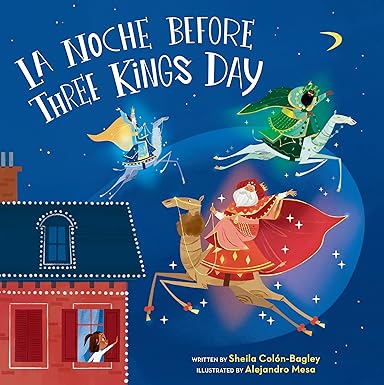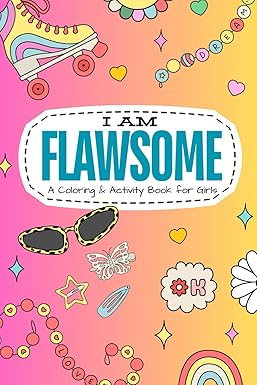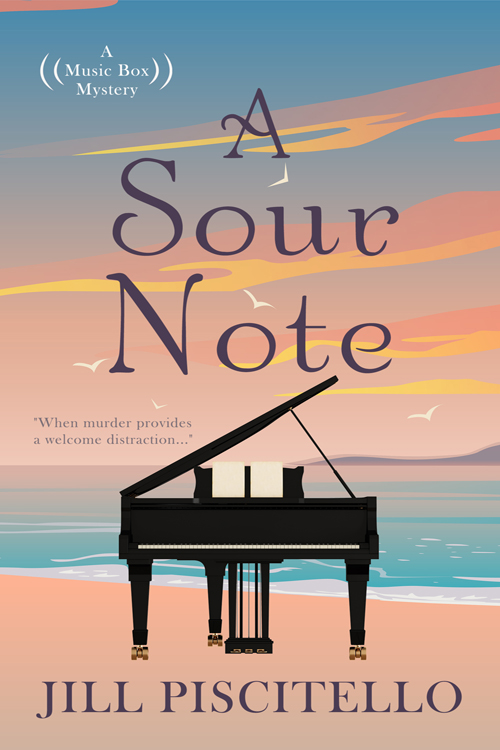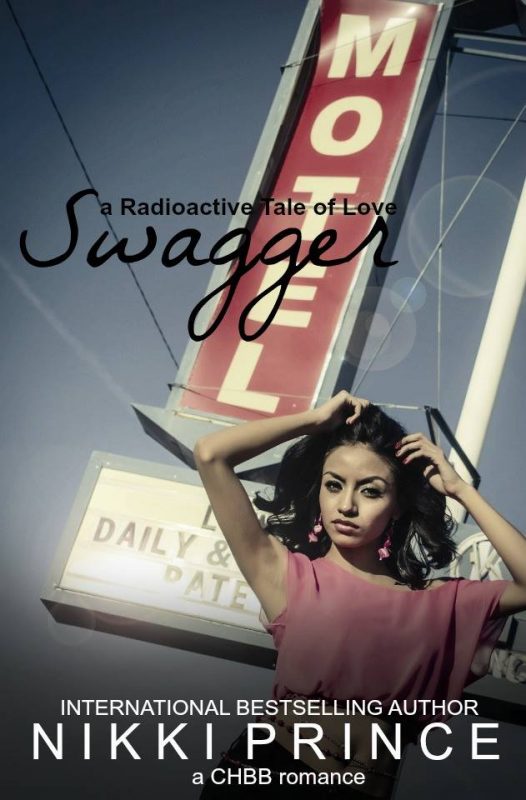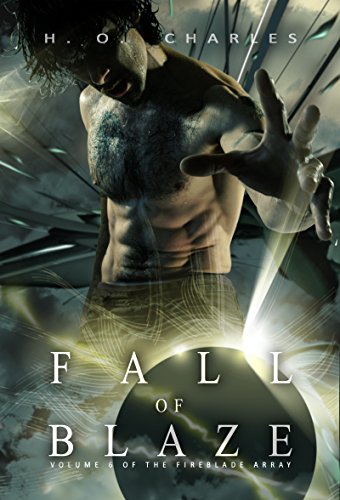It’s Nice to Be Important, But It’s More Important to Be Nice by @meriamwilhelm
December 20, 2017 by Meriam Wilhelm in category A Bit of Magic by Meriam Wilhelm tagged as Christmas, kindness, magicI enjoy including interesting quotes when writing my blogs and even sometimes in my books. So I’m always looking for new ones to add. Many times I find the quotes inspirational, sometimes funny and often motivating. While I love to include comments from famous world leaders, educators and even fellow authors—I’ve rarely included any quotes offered by actors. Not that I intentionally rule them out—it’s just been that way… until today.
“It’s nice to be important, but it’s more important to be nice.”
What famous human being uttered those profound words, you ask. It may surprise you to learn that the insightful thoughts were offered up by none other than Dwayne Johnson, aka The Rock. He said them while celebrating his star on the Hollywood Walk of Fame last week. When asked what the recognition meant to him, he shared that it was all about family…about working hard and surrounding himself with good hard-working people…about the happiness he found in always sharing his gratitude for his friends, family and for his professional success.
His words struck me and I decided to try to put them into action. I thought—I should be more like him. It’s not that hard—after all, I can be a nicer personcan’t I? But man, during this crazy holiday season, it turned out to be a lot harder to do than I had expected.
Whether I was interacting with a cranky postal worker, a harried sales clerk or a nasty fast food server – I challenged myself to try and remember The Rock’s words…”it’s important to be nice”. It was exhausting at first and at times I had to grit my teeth and force a smile on my face. It would have been so easy to give up and succumb to my feelings of frustration and fatigue.
But once I got started, I have to tell you that I found that the tides quickly turned when I took the time to offer a kind word of understanding or gratitude when confronted with an unpleasant individual. I’m not sure if my smile and nice words embarrassed others into change or made them just stop a moment to think about how they were acting—but more than once I heard surprise, relief, and far nicer words offered back to me in place of anything negative. And it felt pretty good and rather empowering to project niceness in place of nastiness.
Thanking the grumpy postal worker for her hard work during these busy days caught her totally off guard. She actually stopped, looked me in the eye, and touched my arm as she smiled and thanked me for noticing and wished me a Merry Christmas too! I admit that I had a little more of a struggle with the store clerk who rang my sale up wrong not once, but twice. Yes, I really did want to choke her until I noticed her eyes filling with tears as she looked at the long line of unhappy folks waiting behind me. I turned around and faced the formidable crowd, smiled and said, Ain’t Christmas great! I’m sure that a few of them wanted to kill me right there, but it seemed to give the kid behind the counter enough time to figure out her mistake and to actually ring up my order correctly. I left wishing her a Merry Christmas and she sighed a thank you and squared her shoulders ready to take on the next customer with a smile on her face.
It hasn’t been easy and I haven’t been always been successful. More than once I’ve had to choose to swallow a comment with a smile rather than announce what a craptacular job I thought someone was doing. I’m glad that I happened to hear The Rock the other day and I actually appreciate the challenge he unknowingly sent my way. It’s been tough to say the least, but I’m going to keep trying to be nice…because it’s important!

Have a wonderful Christmas and a Happy New Year!
The Write Spirit by Jenny Jensen
December 19, 2017 by Jenny Jensen in category On writing . . . by Jenny Jensen tagged as holidays, reading, reading about writing, writing We’re in the midst of the celebration season: Solstice, Hanukkah, Christmas, Cuanza, Wilkie Thumbnoggin. (Okay, that last one is just me but he’s a dear old friend and I only hear from him at this time of year; he leads such an interesting life. Can’t wait to hear what’s happened since that kerfuffle last year on the Isle of Jersey with the sea lions and Prince Charles.) It’s also the season of giving – or if giving isn’t practical, then sharing.
We’re in the midst of the celebration season: Solstice, Hanukkah, Christmas, Cuanza, Wilkie Thumbnoggin. (Okay, that last one is just me but he’s a dear old friend and I only hear from him at this time of year; he leads such an interesting life. Can’t wait to hear what’s happened since that kerfuffle last year on the Isle of Jersey with the sea lions and Prince Charles.) It’s also the season of giving – or if giving isn’t practical, then sharing.
I’d like to share with you some wonderful books – the fiction kind – about writing. We’re all readers and writers and we all read and write for different reasons. I read to learn something, to escape, to relax, to be entertained and, of course, to edit. But sometimes I read for therapy (as a 21st century American, I need a lot of therapy). My favorite therapy books are the fictional tales about writers. These stories deal so satisfyingly with the fears, annoyances and obstacles I run up against in my work in the same way you experience them in yours.
There’s nothing like a good writer examining the perils and pains of their craft through the lens of fiction. It’s not only enjoyable but also comforting to read an author’s take on the hazards we all face when we sit down to write. They address the dreaded writer’s block, the struggle for discipline, the angst of working with publishers and dealing with fans (think King’s Misery). The concept of a writer writing about writing is rich with a million possible premises because this business is – and always will be – about limitless possibilities.
[tweetshare tweet=”Editor Jenny Jensen’s Top Five Picks … On Writing” username=”A_SliceofOrange”]
Here are five of my picks. Some you may already have read but if not, I hope you’ll enjoy them.

Foul Matter, Martha Grimes (2004)
Ms. Grimes gives a grand romp through the egos, posturing and Machiavellian plotting of the industry of writing.

Blind Submission: A Novel, Debra Ginsberg (2006)
A wonderful indie look at delicate author sensibilities, the struggle for those next 1,000 words and the uses of an editor.

Piranha to Scurfy and Other Stories, Ruth Rendell (2001)
The title story offers the most satisfying rebuttal (or is it revenge?) to those obsessive readers who cannot let go of what they perceive to be a misplaced comma or an ‘incorrectly’ used word.

Plot It Yourself, Rex Stout (1959)
Every writer fears a charge of plagiarism. This tale is about a sort of reverse plagiarism and makes me ponder the infinite possibilities one can spin off an original premise.
Breakfast At Tiffany’s, Truman Capote (1958)
We never learn much about the narrator except that he’s a struggling writer. It’s through this writer’s eye that a rather tawdry story becomes magical. It’s the narrator’s portrayal of Holly Golightly, the way he invests her with an almost mystical quality that reaffirms for me the power of a writer’s vision.
If you can add to this list, I hope you will share. I’d love to read those tales about writing that have given you, if not therapy, at least a little wry solace. So happy reading and celebrate well this season!
Jenny
You Have My Permission
December 15, 2017 by Rebecca Forster in category Writing tagged as cruise, inspiration, journey, permission, Travel, writing Anyone who knows me knows that I love an adventure. Being asked to speak aboard a ship was definitely on my bucket list, so I jumped at the chance when I was asked to be an onboard lecturer. I prepared five talks that I thought were rather compelling: Peek Behind the Covers, a Look at Publishing, The Caribbean Influence on Popular Literature and Movies, The Five People You Should Meet in the Caribbean, How to Travel like an Author and Everyone has a Story: What’s Yours?.
Anyone who knows me knows that I love an adventure. Being asked to speak aboard a ship was definitely on my bucket list, so I jumped at the chance when I was asked to be an onboard lecturer. I prepared five talks that I thought were rather compelling: Peek Behind the Covers, a Look at Publishing, The Caribbean Influence on Popular Literature and Movies, The Five People You Should Meet in the Caribbean, How to Travel like an Author and Everyone has a Story: What’s Yours?.
Since I had sailed on this ship as a passenger, I knew the people coming to listen to me were well traveled, curious, intelligent and fun. On my speaking days, they gathered to hear me in the big theatre to watch my PowerPoint presentations and see me slide hither and yon on the dance floor when the sea got rough. At the end of each of my presentations, I asked if there were questions. There weren’t – at least not questions for public consumption. Instead, many in the audience came to speak to me privately. They wanted to talk about their own writing ambitions. There was a surgeon who wanted to write a children’s book, a woman in her nineties whose own children were asking that she write a memoir. There was a man who had written a business book a decade ago but he had always wanted to write a novel. And there was a composer who, as he listened to me, thought to combine lyrics and a story to create a unique novel.
After listening to every person who spoke to me after my lecture, or caught me on deck, or sat with me in the dining room it finally dawned on me what they were after. They wanted my permission to follow their dreams.
[tweetshare tweet=”@Rebecca_Forster: You have my permission . . .follow your dreams.” username=”A_SliceofOrange”]
Strangely, when it comes to fiction or memoir, many of us believe that our words are not as valuable as the next persons. We convince ourselves that writing with honesty and passion will somehow diminish us in the eyes of the world – or at least those we care about. We offer our writing up with caveats like ‘it is silly’, ‘you probably won’t like it’, and ‘promise not to laugh’.
I heard these things in the voices of the people on that ship, but when we were done talking I heard something else. I heard confidence. I heard the excitement. I heard their brains turning as they planned their books. By taking that first step – admitting they harbored dreams of authorship to someone who was already there – they had given themselves permission to write. When we all parted, I knew exactly where they were going. They were going home to put pen to paper or fingers to keyboards. They had taken more than a cruise, they had taken a journey and I have no doubt that by the end of that journey they will have written their book.
Give yourself permission to do whatever it is you dream of doing. If your dream is to write a book, do it with honesty and passion – and don’t forget to share it with the rest of us.
Rebecca
H.O. Charles Featured Author
December 14, 2017 by marianne h donley in category Featured Author of the Month tagged as Fantansy, Featured author, HO Charles

H.O. Charles is an Amazon Top 100 Sci-Fi and Fantasy author of The Fireblade Array – a #2 best-selling series across Kindle, iBooks and B&N Nook in the Sci-Fi and Fantasy categories (#1 would just be showing off, right?)
Okay, it did hit #1 in Epic Fantasy in all those places… BUT DON’T TELL ANYONE because no one likes a bragger.
Though born in Northern England, Charles now resides in a white house in Sussex and sounds like a southerner.
Charles has spent many years at various academic institutions, and cut short writing a PhD in favour of writing about swords and sorcery instead.
Hobbies include being in the sea, being by the sea and eating things that come out of the sea. Walks with a very naughty rough collie puppy also take up much of Charles’ time.
The First…by @denisemcolby
December 12, 2017 by Denise M. Colby in category The Writing Journey by Denise Colby tagged as First, First Line Friday, reading, writingThe First…
Several words come to mind when I hear those words…
- The First Noel.
- The First Time in Forever. Yes it’s a Frozen song.
- And a few others I couldn’t quite remember the entire title.
We all know that Firsts are important.
Babies have a first laugh, a first word, their first step, and so on. Every stage of life has a first to it. The first day of preschool. The first day of high school. The first day of college.
There’s always a first for everything.
The dictionary defines first as; coming before all others in time or order; earliest; 1st; never previously done or occurring.
It’s no wonder that as writers, we all have and celebrate our firsts too:
- The first time we enter a contest
- Submit our work for a critique
- The first time we sign a contract
- The first time we are published
[tweetshare tweet=”@denisemcolby explains … The Firsts” username=”A_SliceofOrange”]
Even within our fictional manuscripts we have firsts:
- When our hero and heroine first lay eyes on each other
- Their first kiss (which is their last first kiss)
- The first time they realize they love the other person.
And part of the fun of writing is to get it right (a whole subjective term, I know, but that’s for a different post).
So, in our first book, getting the first Chapter correct is necessary. Writing the first paragraph in a way to grab readers is crucial. And delivering well, the first line of the book, is essential.
- Vital.
- Imperative.
I think you get the idea.
First Lines in books.
Now that I understand this in my writing journey, I’ve been tracking the first line in the books I read and study (thank you Leslie for the idea). And let me say, it’s amazing how different these lines are. Some start with dialogue, some start with action, and some start with an inner thought from the main character.
And they all start us on a mini adventure we are willing to sit and explore for hours.
Recently, my critique partner introduced me to her blog posts First Line Fridays, which are hosted by a blog called hoarding books.

Authors and readers write their own post on their blog, then post a comment at https://hoardingbooksblog.wordpress.com/ with a link to their posts. The post includes the first line from whatever book is near them or they are reading. I’ve seen this as a Facebook challenge before, but not as a blog post. It’s a great way to share books and authors with other readers, so I decided to join in the fray and post my first, First Line Fridays post this past Friday.
See how I did that? It’s my first! And I’m super excited about it.
If you’re so inclined to read it, you can check it out here. http://denisemcolby.com/first-line-friday-12-8-17/
And if you want to learn more about the hoarding books blog, you can go to https://hoardingbooksblog.wordpress.com/
Happy Reading,
Denise
P.S. I googled ‘The First’ quotes and found a website that organizes quotes by topic. There are a lot of quotes with the word first in them. Go to https://www.brainyquote.com/topics/first if your inclined to take a look.
 Although new to the writing fiction world, Denise Colby has over 20+ years experience in marketing, creating different forms of content and copy for promotional materials. Taking the lessons learned from creating her own author brand Denise M. Colby, Denise enjoys sharing her combined knowledge with other authors.
Although new to the writing fiction world, Denise Colby has over 20+ years experience in marketing, creating different forms of content and copy for promotional materials. Taking the lessons learned from creating her own author brand Denise M. Colby, Denise enjoys sharing her combined knowledge with other authors.
If you are interested in a marketing evaluation and would like help in developing a strategy for your author brand you can find out more here http://denisemcolby.com/marketing-for-authors/
Affiliate Links
A Slice of Orange is an affiliate with some of the booksellers listed on this website, including Barnes & Nobel, Books A Million, iBooks, Kobo, and Smashwords. This means A Slice of Orange may earn a small advertising fee from sales made through the links used on this website. There are reminders of these affiliate links on the pages for individual books.
Search A Slice of Orange
Find a Column
Archives
Featured Books
LA NOCHE BEFORE THREE KINGS DAY
La Noche Before Three Kings Day is a perfect holiday tale.
More info →FALL OF BLAZE
The Darkworld turns ever more slowly, and its skies grow bleaker by the hour.
More info →Newsletter
Contributing Authors
Search A Slice of Orange
Find a Column
Archives
Authors in the Bookstore
- A. E. Decker
- A. J. Scudiere
- A.J. Sidransky
- Abby Collette
- Alanna Lucus
- Albert Marrin
- Alice Duncan
- Alina K. Field
- Alison Green Myers
- Andi Lawrencovna
- Andrew C Raiford
- Angela Pryce
- Aviva Vaughn
- Barbara Ankrum
- Bethlehem Writers Group, LLC
- Carol L. Wright
- Celeste Barclay
- Christina Alexandra
- Christopher D. Ochs
- Claire Davon
- Claire Naden
- Courtnee Turner Hoyle
- Courtney Annicchiarico
- D. Lieber
- Daniel V. Meier Jr.
- Debra Dixon
- Debra H. Goldstein
- Debra Holland
- Dee Ann Palmer
- Denise M. Colby
- Diane Benefiel
- Diane Sismour
- Dianna Sinovic
- DT Krippene
- E.B. Dawson
- Emilie Dallaire
- Emily Brightwell
- Emily PW Murphy
- Fae Rowen
- Faith L. Justice
- Frances Amati
- Geralyn Corcillo
- Glynnis Campbell
- Greg Jolley
- H. O. Charles
- Jaclyn Roché
- Jacqueline Diamond
- Janet Lynn and Will Zeilinger
- Jaya Mehta
- Jeff Baird
- Jenna Barwin
- Jenne Kern
- Jennifer D. Bokal
- Jennifer Lyon
- Jerome W. McFadden
- Jill Piscitello
- Jina Bacarr
- Jo A. Hiestand
- Jodi Bogert
- Jolina Petersheim
- Jonathan Maberry
- Joy Allyson
- Judy Duarte
- Justin Murphy
- Justine Davis
- Kat Martin
- Kidd Wadsworth
- Kitty Bucholtz
- Kristy Tate
- Larry Deibert
- Larry Hamilton
- Laura Drake
- Laurie Stevens
- Leslie Knowles
- Li-Ying Lundquist
- Linda Carroll-Bradd
- Linda Lappin
- Linda McLaughlin
- Linda O. Johnston
- Lisa Preston
- Lolo Paige
- Loran Holt
- Lynette M. Burrows
- Lyssa Kay Adams
- Madeline Ash
- Margarita Engle
- Marguerite Quantaine
- Marianne H. Donley
- Mary Castillo
- Maureen Klovers
- Megan Haskell
- Melanie Waterbury
- Melisa Rivero
- Melissa Chambers
- Melodie Winawer
- Meriam Wilhelm
- Mikel J. Wilson
- Mindy Neff
- Monica McCabe
- Nancy Brashear
- Neetu Malik
- Nikki Prince
- Once Upon Anthologies
- Paula Gail Benson
- Penny Reid
- Peter Barbour
- Priscilla Oliveras
- R. H. Kohno
- Rachel Hailey
- Ralph Hieb
- Ramcy Diek
- Ransom Stephens
- Rebecca Forster
- Renae Wrich
- Roxy Matthews
- Ryder Hunte Clancy
- Sally Paradysz
- Sheila Colón-Bagley
- Simone de Muñoz
- Sophie Barnes
- Susan Kaye Quinn
- Susan Lynn Meyer
- Susan Squires
- T. D. Fox
- Tara C. Allred
- Tara Lain
- Tari Lynn Jewett
- Terri Osburn
- Tracy Reed
- Vera Jane Cook
- Vicki Crum
- Writing Something Romantic
Affiliate Links
A Slice of Orange is an affiliate with some of the booksellers listed on this website, including Barnes & Nobel, Books A Million, iBooks, Kobo, and Smashwords. This means A Slice of Orange may earn a small advertising fee from sales made through the links used on this website. There are reminders of these affiliate links on the pages for individual books.




















